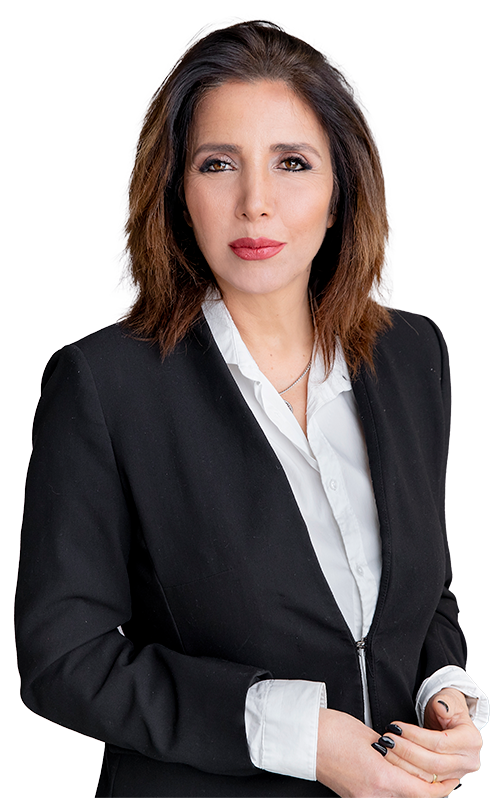Table of Contents
| Introduction | What is Enduring Power of Attorney (EPA)?Importance of EPA in Estate Planning |
| Understanding the Basics | Definition and Purpose of EPAKey Parties Involved: Donor, Attorney, and WitnessDistinguishing EPA from Standard Power of Attorney |
| Types of EPA | General EPA vs. Specific EPADurable EPA vs. Non-Durable EPASpringing EPA vs. Immediate EPA |
| Creating an EPA | Legal Requirements for Drafting an EPACapacity and Consent of the DonorRole of Witnesses and Their Eligibility |
| Powers and Responsibilities | Scope of Authority Granted to the AttorneyManaging Finances and AssetsHealthcare and Medical Decisions |
| Activation and Termination | Triggers for Activation of EPARevoking or Terminating an EPAHandling Contingency Plans |
| Importance of Choosing the Right Attorney | Trust and ReliabilityLegal and Financial CompetenceCommunication and Decision-Making Skills |
| Safeguards and Oversight | Safeguarding the Donor’s InterestsMonitoring the Attorney’s ActionsReporting Requirements |
| Real-Life Scenarios | Case Studies Illustrating the Use of EPALessons Learned from Noteworthy EPA Cases |
| Preparing for the Future | How EPA Fits into Comprehensive Estate PlanningAddressing Potential Challenges and Pitfalls |
| Conclusion | The Value of Enduring Power of AttorneyEncouraging Proactive Estate Planning |
Freedom of decision in writing a will
The legislator established rules that guarantee that the testator will be the sole decider regarding his will
The Law of Inheritance establishes various principles to ensure that the will is made entirely of the free and true will of the testator, without any influence or pressure from outside parties and without any obligation on the part of the testator.
- The principles that will be detailed below apply to the 4 types of wills defined in the Inheritance Law:
- Handwritten will
- Will with witnesses
- Will before an authority
- Oral will
The freedom for the team
- Each person is given absolute freedom to draft and change or cancel his will – according to his personal choice and without fear of obligation or restriction on the subject.
- Any commitment to draw up, change or cancel a will, or not to carry out any of these actions – is not legally valid and should not be acted upon.
The will is a personal act
- Here, too, the legislator is careful to preserve the free will of the testator and that the will be made by him alone, independently. The rule in the law can be divided into two parts:
- A will must be made by the testator himself and not by any other person.
- Any provision in the will stating that the will will be valid if another person agrees to it or wants it – null and void.
Authority to determine heirs may not be transferred to another person
- The legislator forbids the mitzvah to authorize another person in his will to determine who will inherit his property – the mitzvah must decide this himself.
- The mitzvah is forbidden to determine that a certain winner will inherit it, but let another person determine what will be the share of that winner in the inheritance.

| Customer Information | Details |
| Name of Testator | [Testator’s Name] |
| Types of Wills Chosen | Handwritten, Will with Witnesses, Will before an Authority, Oral Will |
| Freedom for Decision | Absolute freedom to draft, change, or cancel will without obligation or restriction |
| Personal Act | Will must be made by the testator alone |
| Authorization Prohibited | Testator cannot authorize another person to determine heirs |
Elimination of external influences
- To prevent situations in which various external influences will distort the will of the testator, any instruction in the will that was made due to prohibited influence is canceled: rape, threat, unfair influence, trickery or fraud.
- If a year has passed from the day the external influence ceased to act on the will, or from the day he became aware of the fraud, and he chose not to change his will, those defects will not result in the annulment of the will instruction or its amendment.
Rape and threat
- “Rape” – when any provision in the will was written due to coercion, and not out of the free will of the testator.
- “Threat” – in the event that an external party threatened the mitzvah and this threat caused him to write some provision in his will.
- A cause-and-effect relationship must be proven between the rape and the threat applied to the mitzvah and the instruction in the will, in order for it to be annulled.
undue influence
- Not every influence is unfair (eg persuading a person to write a will or conversations between family members about the will).
- There is no unequivocal determination in the ruling which influence will be considered unfair, and each case is examined according to its circumstances.
- Here too, in order for an instruction to be revoked, a cause and effect relationship between the unfair influence and the instruction must be proven.
| Customer Information | Details |
| Definitions of Heirs | Can define heirs and conditions in the will |
| Condition Reasonable | Conditions for inheritance must be reasonable |
| Alternative Heirs | Can designate alternative heirs |
| Heir after Heir | Can specify conditions for second heir |
| Probationary Heirs | Can set conditions for heirs’ inheritance obligations |
Trickery and deception
- A will order made as a result of the mitzvah fraud, or using some kind of trick – will be canceled.
- Many actions can be defined as trickery and fraud, and the court will have to determine each case on its merits.
Definitions of heirs in a will
Different definitions of heirs allow adaptation to future circumstances and conditions in which the testator is interested
The conditions must be reasonable, an unreasonable condition may be disqualified by the family court
The Inheritance Law allows the testator to define in his will definitions of heirs and different conditions that will be adapted to future circumstances and situations.
warning
- The conditions for inheritance must be reasonable and logical, and if the court gets the impression that a condition in the will is unreasonable, it may invalidate the condition.
- For this reason, if you wish to set conditions for inheritance in a will, it is recommended to consult a lawyer before drafting the will.

| Customer Information | Details |
| Undetermined Share | Equal division among heirs if not specified |
| Deceased Heir | What happens if an intended heir dies before the testator |
| Invalid or Departed Heir | Instructions for dealing with invalid or departed heirs |
Heir instead of successor
- The law allows a person to designate an alternate heir in case the first heir cannot inherit for any reason. In this way, the mitzva guarantees that his wish will be fully fulfilled, taking into account all the possibilities that may occur.
- The Mitzva may stipulate that the substitute heir will inherit in any of the following cases:
- The first heir died before the mitzvah.
- The first heir will be found disqualified from inheriting.
- The first heir waived what he was entitled to in the will, and did not do so in favor of his spouse, child or brother of the testator.
- The testator may command in this way also to more than two, that is, to determine more than one alternative heir.
Heir after heir
- Similar to the arrangement of an heir instead of an heir, here too the legislator tries to allow the mitzvah to establish conditions that will guarantee that his will will reach exactly who he desires, even if different events occur over time.
- The mitzva is allowed to command two, so that the second will win after the first has already inherited, subject to certain conditions:
- The second heir will be entitled if the first heir dies, or upon the fulfillment of a certain condition stipulated by the will, or upon the arrival of a date stipulated in his will, all whichever is the earliest.
example
A person bequeaths his apartment to his spouse, when the apartment will pass from the spouse to the deceased’s son after 15 years, or after the spouse dies – whichever occurs first.
- To avoid endless control of the mitzvah over future generations, it is possible to command in this way only two heirs, unless the heirs next in line were already born when the will was made.
Probationary heir rejects
- “Repudiation condition” is a condition that only when it is fulfilled the heir wins the inheritance.
- The mitzvah may command that an heir will be awarded only when a condition is met or a certain date is reached.
- Until the condition is met, the property or asset will be managed by the estate manager.
example
A person bequeathing a certain amount of money to his son, if he will start studying at the university.
If the condition is not met
- In the event that the mitzvah did not determine who would win if the condition could not be fulfilled, the heirs would win according to law.
- For this reason it is desirable that the mitzvah does determine who will win if the condition is not met.
| Customer Information | Details |
| Bequeathed Property | How the property is inherited |
| Handling Lien | Winner cannot demand removal of property lien |
| Compensation for Loss | Winner cannot seek compensation if property is lost |
| Profits from Property | How profits from property are treated |
| Unspecified Asset | Treatment of unspecified assets |
example
A woman bequeaths her apartment to her eldest son, who will receive it only when he marries. In the event that he does not marry by a certain age, the apartment will pass to his second son.
Conditional heir ceases
- “Termination” is a condition according to which a certain person is indeed the heir, but if a certain event happens or a certain date arrives, he will cease to be an heir, and his right will pass to another.
example
A man bequeaths a car to his daughter, and orders that if the daughter stops her studies before she gets a degree – she will cease to be the heir to the car.
If the condition is met
- The mitzvah may determine to whom that part of the inheritance will pass in the event that the condition has been met or the deadline has arrived.
example
A person determines that his son will inherit his apartment to a period of ten years. At the end of the ten years, the apartment will be transferred to the ownership of his daughter.
- In the case where the commandment did not determine who will win when the condition is met or the time comes, the heirs will win according to law.
Heir obliged to speak what
- The testator may order in his will something that an heir must do, or refrain from doing, with what he received from the estate.

| Customer Information | Details |
| Activation Triggers | Events that activate the Enduring Power of Attorney |
| Revoking or Terminating | How to revoke or terminate EPA |
| Contingency Plans | Plans for handling unforeseen circumstances |
example
A person bequeathing to his son a sum of money to be deposited in a savings bank and used exclusively for his grandson’s studies.
example
A man who orders his daughter to run his shop so that she will continue to operate it and not sell it.
- The law states that anyone who is interested in the fulfillment of the obligation, can demand its existence. For example, the grandson of the deceased grandfather in the example above can demand the amount of money from his father to finance his studies. In the event that there is a public interest – the Attorney General or his attorney can also demand the performance of the duty.
Rules regarding beneficiaries under a will
The law states what is the law of the winners (heirs) in the will in different cases
Heirs whose share in the inheritance has not been determined
- If a person in his will bequeathed a certain asset or property to a number of beneficiaries (heirs) and did not determine what the specific share of each heir would be from the asset or property, then the asset or property will be divided among all the heirs equally.
| Customer Information | Details |
| Attorney Selection | Importance of choosing the right attorney |
| Trust and Reliability | Qualities of a reliable attorney |
| Legal and Financial Competence | Necessary skills and competence |
| Communication Skills | Importance of effective communication |
An heir who died before the testator
- There may be a situation where the person who is supposed to inherit according to the will, dies before the mitzvah (the testator). In such a case, two situations are possible:
- The mitzva specified another person who would inherit in the event that the intended heir dies. It is, in fact, a determination of an heir instead of an heir. In such a situation, of course, one acts according to the will of the testator expressed in his will and the substitute heir specified in the will will inherit the share of the deceased heir.
- The mitzvah did not specify another person who would inherit in the event that the intended heir dies. In such a situation, the law states that:
- If the designated deceased heir has descendants – they will inherit what they were supposed to inherit, according to the rules of legal inheritance.
- If the deceased intended heir has no descendants – the heirs will receive his share according to the law of the mitzvah. In any case, the provision of the will in favor of the deceased winner is cancelled.
Invalid heir and departed heir
- A testator can write a provision in his will in case the heir is found to be ineligible to inherit, or has left his share of the estate not in favor of his spouse, child or brother of the testator. This is also a determination of an heir instead of an heir.
- If a beneficiary according to a will is found to be ineligible to inherit or has left his share and the will did not designate another person to inherit in his place, the will’s instruction in favor of that beneficiary is canceled.
Important Information
- To ensure a quick and clear division of the inheritance, only those who were alive at the time of the testator’s death – will be able to inherit it. The law states that anyone born within 300 days after the testator’s death will be considered as someone who was alive at the time of his death.

| Customer Information | Details |
| Elimination of Influences | Instructions to eliminate external influences |
| Invalidating Factors | Factors that can invalidate will instructions |
| Rape and Threat | Explanation of what constitutes “rape” and “threat” |
| Undue Influence | Factors considered for unfair influence |
| Trickery and Deception | Actions defined as trickery and fraud |
example
A grandfather cannot bequeath property to grandchildren who will be born after his death, unless it is a grandchild born within 300 days of his death.
- It is also possible to bequeath to an existing corporation or to a corporation that was established within a certain period of time, established by law, from the death of the testator.
Rules regarding assets in a will
In cases where the mitzvah did not specify otherwise in his will, the law establishes rules regarding the assets he bequeaths
The rules regarding the assets that the testator bequeaths in his will, in the event that he did not stipulate otherwise in the will:
- In the event that he bequeathed a certain property, the winner will win it as it is at the time of the bequest.
- The winner of the property according to a will is not entitled to demand from the other heirs the disposal of a lien on which the property was encumbered by the will.
- The winner is not entitled to compensation from the other heirs if at the time of the mitzvah the property was no longer in his possession.
- The profits from the property, until the testator’s death, are included in the general estate account. From the date of the death of the mitzvah onwards, they belong to the account of the winner of the property (unless he won the property at a later date).
- In a situation where the mitzvah commanded an asset that is not specific, the recipient is entitled to a medium type (average) asset among the assets of the mitzvah

| Customer Information | Details |
| Heir Instead of Successor | Allowance to designate an alternate heir |
| Heir After Heir | Setting conditions for subsequent heirs |
| Probationary Heirs | Conditions for inheriting based on fulfillment |
| Conditional Heir Ceases | Setting conditions for cessation of inheritance |
| Heir Obliged to Act | Orders for heirs to perform certain actions |
.
example
A woman ordered her daughter a piece of jewelry, without specifying which one. The daughter is entitled to a medium type of jewelry relative to the other mitzvah jewelry.
Securing Your Family’s Future: Trust Rachel Schachar Law & Notary Firm for Inheritance and Wills Expertise
When it comes to navigating the intricate terrain of family law and inheritance matters, you deserve the expertise and guidance of a seasoned professional. Look no further than Rachel Schachar Law & Notary Firm, where our dedicated team of legal experts, led by Rachel Schachar herself, stands ready to assist you in securing your family’s future. With a profound understanding of the intricacies surrounding inheritance and wills, our firm has earned a stellar reputation for providing comprehensive, tailored solutions to our clients. We take pride in simplifying complex legal processes, ensuring your peace of mind during what can be emotionally challenging times. Trust in our experience, commitment, and unwavering dedication to protecting your family’s legacy. Your future deserves nothing less than the expertise found at Rachel Schachar Law & Notary Firm.




